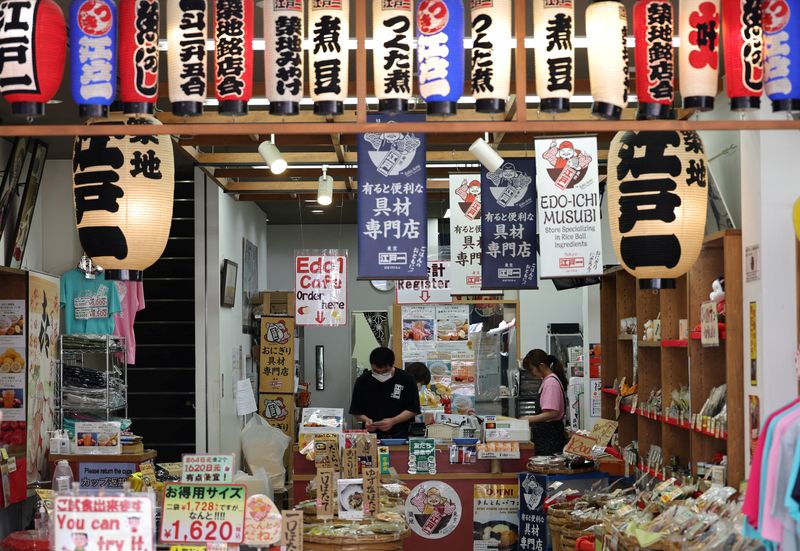[ad_1]
By Leika Kihara and Roushni Nair
TOKYO/BENGALURU (Reuters) -Financial institution of Japan Governor Kazuo Ueda stated the timing of the following rate of interest hike was “approaching” because the economic system was shifting consistent with the central financial institution’s forecasts, the newspaper reported, leaving open the prospect of a December fee enhance.
He, nonetheless, additionally stated the BOJ needed to scrutinise developments within the U.S. economic system as there was a “huge query mark” on its outlook, such because the fallout from President-elect Donald Trump’s proposed tariff hikes, in response to the Nikkei.
“We are able to say it is approaching within the sense that financial information are on observe to satisfy our forecasts,” Ueda advised Nikkei in an interview performed on Thursday and printed on Saturday, when requested whether or not the timing of the following fee hike was nearing.
“We are going to regulate the diploma of financial easing on the acceptable time if we turn into assured” that underlying inflation accelerates towards the BOJ’s 2% goal within the second half of its three-year projection interval from fiscal 2024 to 2026, Ueda stated.
The remarks reinforce rising market expectations that the BOJ will elevate its short-term coverage fee from the present 0.25% as quickly as its subsequent assembly on Dec. 18-19.
The yen jumped on Friday after core inflation in Japan’s capital accelerated in November, as markets stepped up bets of a December fee hike. Merchants now see a 60% probability of a hike subsequent month, having been undecided earlier than the info.
Within the interview, Ueda stated wage development, the pass-through of wage hikes to costs, and the power of consumption had been key elements within the BOJ’s determination on how quickly to boost charges.
Common pay has lately been rising at a year-on-year tempo of two.5% to three%, which is roughly in keeping with client inflation shifting round 2% in the long term, Ueda stated, including it was vital for this development to proceed.
The result of subsequent 12 months’s annual wage negotiations between companies and unions is essential, he stated. “Whereas it’s going to take a bit extra time to verify the momentum (of subsequent 12 months’s wage talks), we do not essentially have to attend till every little thing turns into clear.”
Rising labour prices from increased wages are pushing up the value of providers on a business-to-business stage, although some information counsel the pass-through to shoppers stays weak, Ueda stated, including that he needed to look at developments rigorously.
Ueda emphasised that if the Japanese yen continues to depreciate after the nation’s inflation fee surpasses the annual 2% goal, it might pose a possible risk to the central financial institution’s financial projections and warrant a response.
The weak yen, which heightens inflationary stress by pushing up import prices, was among the many elements the BOJ defined as resulting in its determination to boost rates of interest in July.
The BOJ ended adverse rates of interest in March and raised short-term charges to 0.25% in July on the view Japan was making progress in direction of durably attaining its 2% inflation goal.

Ueda had repeatedly signalled readiness to hike charges once more if the economic system moved consistent with the financial institution’s forecast, although he has dropped few clues on how quickly that would occur.
Simply over half of economists polled by Reuters anticipate the BOJ to boost charges once more at its Dec. 18-19 assembly.
[ad_2]
Source link



